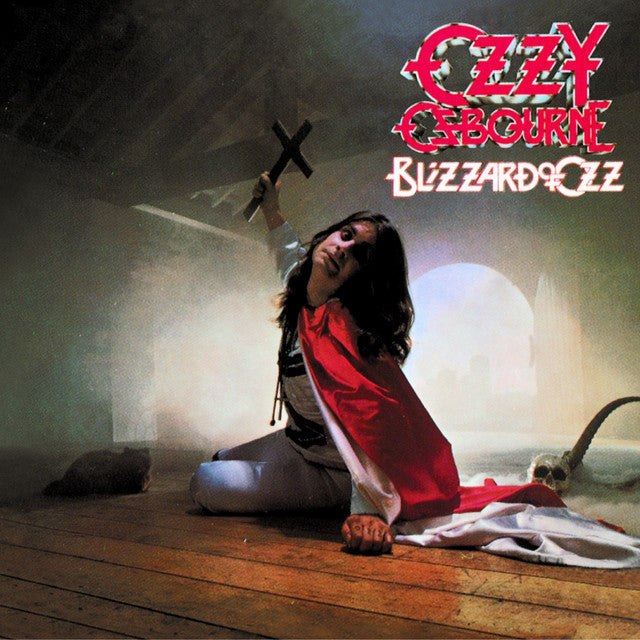
With the recent passing of Ozzy Osbourne, we find ourselves looking back not just at the Prince of Darkness himself, but at the legacy he carved into music history. One of the brightest flames in his long and chaotic journey was his 1980 solo debut, Blizzard of Ozz — a record that didn’t just prove he could survive without Black Sabbath, but that he could thrive.
Right from the opening moments of “I Don’t Know,” the album feels like a reintroduction. There’s hesitation in the atmosphere — a brief emptiness — before a riff cuts through like a blade. It’s not overly complex, but it’s unforgettable. That strange blend of simplicity and epic flair is what defined Ozzy’s solo debut. His voice, processed just enough to sound massive, floats over whimsical breakdowns and ripping solos like a ghost from another world.
And then “Crazy Train” crashes in. It’s the kind of song that feels mythological now, its opening scream echoing across decades of rock radio and stadium chants. It rides the edge between evil and ecstatic — the sound of someone holding onto sanity by a thread, all while throwing horns in the air. Randy Rhoads’ guitar work here is nothing short of iconic, full of charisma and control, like he’s commanding the clouds with each note. It’s not just a song — it’s a declaration.
But Blizzard of Ozz isn’t all fire and fury. Tracks like “Goodbye to Romance” and “Dee” show the quieter side of Ozzy — the dreamer, the romantic, the man behind the bat-biting legend. “Goodbye to Romance,” in particular, feels like a heartfelt letter to the past, wrapped in soft cymbal splashes and vintage, echo-laced guitar tones. It’s introspective in a way Ozzy rarely got credit for.
Then there’s “Suicide Solution” — a track steeped in controversy, but heavy with groove and menace. Its basslines walk with swagger, while Ozzy’s voice, sometimes raw and untouched, sometimes dripping in effects, cuts through like a broken warning sign. It’s less about glamorizing the dark and more about acknowledging it — something Ozzy always understood better than critics gave him credit for.
“Mr. Crowley” and “Revelation (Mother Earth)” are where Ozzy truly channels the mystical and the macabre — organs, choirs, gothic energy, and sprawling solos that feel almost spiritual in nature. These songs don’t just sound like metal; they feel like rituals. When Ozzy sings with pain and power over cathedral-like instrumentation, it’s impossible not to feel the weight of it all.
Even tracks like “No Bone Movies” and “Steal Away (The Night)” — often overlooked — have a playful, raw charm. Whether it’s bluesy grit or fast-paced energy, they show that Ozzy wasn’t trying to just remake Sabbath. He was building his own storm.
Looking back, Blizzard of Ozz wasn’t just a strong debut — it was the foundation of a new era in metal. It gave us a glimpse of what Ozzy could be when unchained: theatrical, dark, surprisingly tender, and always unmistakably himself. And though many tried to follow the trail he left in the snow, no one ever quite matched his balance of madness and melody.
Now, with Ozzy gone, Blizzard of Ozz feels like more than an album. It’s a farewell letter written decades too early — a howl into the void from a man who saw the edge, danced on it, and somehow turned it into art.
Rest in power, Prince of Darkness. The train goes off the rails, but your music keeps on riding.
RATING: 8.5/10
NOTABLE TRACKS:
Crazy Train
Goodbye To Romance
Steal Away (The Night)

